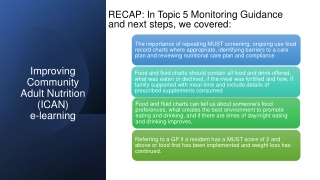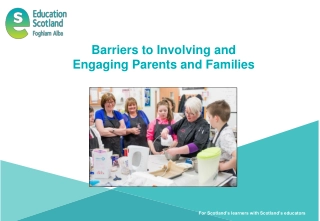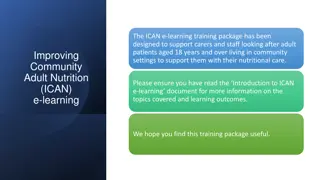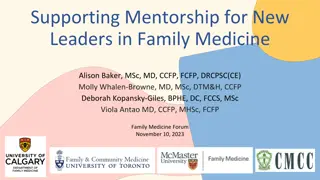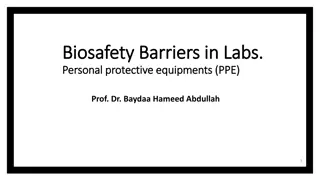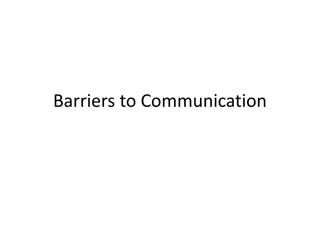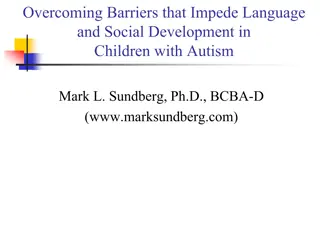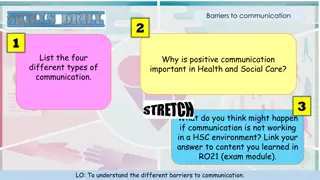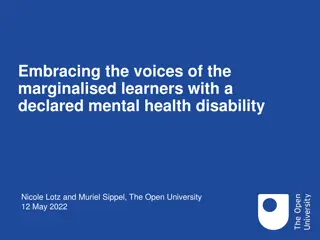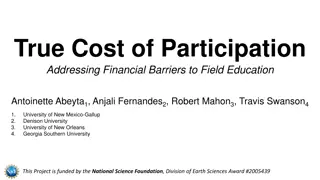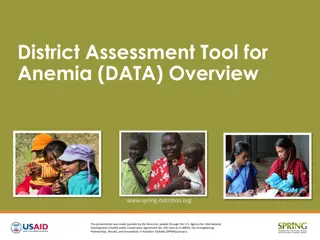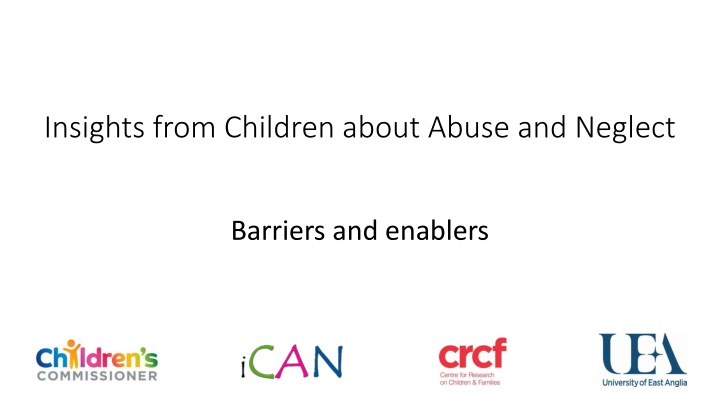
Insights on Barriers and Enablers in Addressing Child Abuse and Neglect
Explore barriers faced by children and school staff in addressing abuse and neglect. Understand factors hindering children from disclosing, such as fear, shame, and past experiences. Discover how teachers can overcome barriers to listening and responding effectively in such situations.
Download Presentation

Please find below an Image/Link to download the presentation.
The content on the website is provided AS IS for your information and personal use only. It may not be sold, licensed, or shared on other websites without obtaining consent from the author. If you encounter any issues during the download, it is possible that the publisher has removed the file from their server.
You are allowed to download the files provided on this website for personal or commercial use, subject to the condition that they are used lawfully. All files are the property of their respective owners.
The content on the website is provided AS IS for your information and personal use only. It may not be sold, licensed, or shared on other websites without obtaining consent from the author.
E N D
Presentation Transcript
Insights from Children about Abuse and Neglect Barriers and enablers
Aims of the session Exploring how school and college staff can manage interactions with children who have been abused and neglected Considering barriers and enablers to telling from children s point of view Considering barriers and enablers for staff supporting children
Professionals in universal services cannot and should not replace the function of social work, but they do need to be able to understand, engage and think professionally about the children, young people and families they are working with (Munro, 2010, p26) Munro, E. (2010) the Munro Review of Chlid Protection, Part One: A systems analysis. Available at: https://www.gov.uk/government/publications/munro-review-of-child-protection-part-1-a- systems-analysis
Barriers It can be really difficult for both children and school or college staff to talk about and deal with concerns about abuse and neglect What stops children from telling? What stops teachers from listening and responding?
Barriers to telling from the childs point of view: Age, gender, ethnicity (younger children, boys, minority ethnic groups) Emotional: shame, embarrassment, self-blame They can t get the words out, not having the vocabulary Lack of recognition that what is happening counts as abuse Loyalty to family members Fear: someone they care about may get into trouble, they might get taken away from family, worry about brothers and sisters Fear: No one will believe them Fear: it happened a long time ago Fear: they will have to go home to family who will know they have told Fear: threats from abuser of consequences of telling Self-reliance they are used to dealing with things on their own, they can t trust anyone with it Negative past experience of telling, careful what they say around professionals no one will do anything or they ll do something the child doesn t want
Barriers to listening and responding from the teachers point of view: I haven t got time for this It s not my job, I m a teacher It doesn t happen to children here This is painful to hear What if I m wrong about this? Her parents seem so nice I m scared of her parents I don t know what to do, what if I do the wrong thing I don t know what to say to her Someone else must already know, the family is well known Someone else will deal with it If I make a referral no one will do anything and she will lose trust in me I haven t had enough training I m not sure what the process is Limited resources for pastoral support, restricted budgets
Enablers It can be really difficult for both children and school or college staff to talk about and deal with concerns about abuse and neglect What enables children to tell? What enables teachers to manage interactions with children who tell them about abuse and neglect?
Enablers for the child: School is a safe place to be Education about relationships and abuse is included in the curriculum so pupils are aware of risks and have the words to voice concerns Pupils are encouraged to approach staff with concerns Pupils can form trusting relationships with members of staff
Enablers for the teacher*: Senior managers within schools encourage a culture where safeguarding is central Well-funded services including pastoral support Appropriate spaces for children to go to within the school Staff know students well enough to recognise potential signs of abuse such as changes in behaviour Staff have access to high quality training, including non-teaching staff There are strong collaborative links between school staff and other agencies Adults and children are respectful of each other and there are effective measures to address bullying and other forms of abuse by peers or adults within school There is a culture of openness and trust amongst staff and between staff and students There is a culture of participation where students are involved in the development of policy and systems * The points listed include findings from Lefevre et al (2013) Good Practice in Safeguarding and Child Protection in Secondary Schools, London: Office of the Children s Commissioner
Learning points Children need supportive environments and relationships to allow them to talk about abuse and neglect School and college staff need knowledge and training to respond effectively to children who disclose abuse and neglect Schools and colleges need resources and supportive environments to allow staff to listen and respond to children who disclose abuse and neglect

